GENTLE, POSITIVE WEANINGWhile the word "weaning" often conjures up images of wailing babies and swollen, painful breasts, gentle, baby-led weaning is often so gradual and natural a process that mother may not even remember the exact day or even week that her little one weaned from the breast. Gradual weaning is gentler on both mother and baby. I use the term "positive weaning" to describe this style of weaning. Instead of abruptly removing a child from the breast, positive weaning is a mindset that respects the child's developmental readiness and views weaning as a process. Being "fully weaned" is a milestone and achievement, like mastering how to use the toilet, learning to ride a bike, or learning to read. Positive weaning also respects the mother's needs and bodily integrity, since the process of weaning may often be the child's first exposure to the idea that each person's body belongs to that person, and their first experience of respecting that others can, and will, say "no" to him or her on occasion. These important lessons have many benefits for the child long into the future. INFANT MASSAGENo matter how they are fed, newborns benefit from infant massage as they transition from womb to world. For a young child, touch is as vital to life as milk. Infants who regularly receive infant massage cry less, develop faster, and have fewer discomforts. Infant massage is a wonderful way to encourage your baby's health and well-being while bonding with your child. JOYFULLY WELCOMING A NEW SIBLINGFor many children, their special time as the "baby of the family" will come to an end when a new sibling arrives. The uncertainty of how their child will handle this transition is often a source of considerable worry for parents during pregnancy. Often in books or shows on this topic, the older sibling is portrayed as jealous and the parents or grandparents as only interested in the new baby, and in my opinion, these negative depictions plant seeds of worry and pessimism in the older sibling that may contribute to a long-term "sibling rivalry." My own experiences as a mother of seven have taught me that this transition is easier on the new big brother or sister when the older child is involved in the pregnancy; for example, attending prenatal care or ultrasound appointments; looking at ultrasound photos together; or helping to pick out clothing or prepare the home for the new baby. It is beneficial if there have been age-appropriate discussions of the birth process and birth plans; as well as frequent discussions of what they can expect of a newborn, and how Mom, Dad, and Big Sister or Brother will care for the baby...all with a positive, excited attitude. During the typical challenges of pregnancy, and especially if complications arise during the pregnancy or birth, it is best to talk with your child in an age-appropriate way about what is happening to mommy or baby and how they can help, even if in very simple ways, like, "Please bring Mommy a glass of water." When the child does these precious acts of service, praise the child, letting him or her know what a great big brother or sister he / she already is. Empathy, gentleness, education, and encouragement will go a long way toward helping the young child to embrace this new role that, God willing, will last a lifetime. SCBP RESOURCES
0 Comments
We had been hoping for and planning to try for another child -- so the news I was pregnant was welcomed by both of us -- but I share this story to let you know that holiday weaning -- and an unexpected holiday-conceived baby -- aren't just theories for me! A mere two months prior to that positive pregnancy test, when our oldest child turned two years old, I had visited my doctor to let her know that my fertility (both menstruation and ovulation) had not yet returned. Due to my prior history of infertility, she had advised that we begin to investigate possible causes. However, I had done nothing more than talk to the doctor when we conceived our dearly loved second child. Surprise! What happened? After giving birth, a breastfeeding mother has two different hormonal "sides" that can be imagined as the two sides of a scale. On one side, she has breastfeeding hormones that promote lactation (and tend to suppress ovulation) -- and on the other, reproductive hormones that promote ovulation, and which may lead to another pregnancy. While the timing of her return of fertility varies from woman to woman, and even from baby to baby by the same mother (due to many different factors) the general principle is that frequent and unrestricted suckling at the breast is the most important factor that keeps the breastfeeding hormones side of the scale "heavier," resulting in continued natural suppression of fertility. However, the further out in time from the birth, the easier it is for the reproductive hormones to tip the scales, so that menstruation or ovulation may return. This is part of the reason why the holiday season is indirectly responsible for many late summer and fall babies! What factors contribute to this unexpected holiday-related return of fertility? Here is a partial list:
If, like my husband and me, you are hoping for another baby, then just pay attention to your signs of fertility and enjoy making your holiday baby if the signs point to being fertile! However, especially if your baby is under a year old, you may want to protect your breastfeeding relationship, discourage weaning, and delay making a new baby until later in the future. In that case, you definitely want to do what you can to avoid changes in your usual nursing and sleeping routines as much as possible. This may not be the year to host holidays and celebrations! Keep your meals and preparations simple, and maybe even skip some of this year's parties. Remember, you need to maintain your normal routines as much as possible, so that baby's frequent suckling at the breast remains as consistent as possible. At the same time, be vigilant to observe and record your signs of fertility, so that if you do detect any changes that indicate fertility, you and your husband can still celebrate, but in less intimate ways. If a more detailed discussion of how to protect your breastfeeding relationship during the holidays, how to interpret your signs of fertility, or how to understand the return of fertility after birth would be helpful to you, contact me (Christelle) to book a free online, phone, or in-person consultation. As a certified breastfeeding counselor and fertility educator, I can help! For Catholic breastfeeding mothers, "Navigating the Holidays as a Breastfeeding Family," and the unexpected return of fertility are the discussion topics of our online Catholic Nursing Mothers' Group in November. Reach out if you would like to join us for this free online breastfeeding support group!
August was a busy month for SCBP! The month got rolling with the August 4 session of the Catholic Nursing Mothers' Group, a group co-sponsored by the Catholic Nursing Mothers' League. We discussed "Comfort Nursing." We welcomed nine mothers and their children to this online session. The next day, August 5, I talked about "The Works of Mercy and Perinatal Loss" at Peace House right here in Stillwater, Minnesota. I was blessed to spend a lovely evening with several of the members of the Catholic Worker movement, who help women and mothers and their children in need of transitional housing, support, and life coaching. I was able to share with the group about our affiliated ministry, Tiny Treasures Perinatal Support. Team Tiny Treasures ships clothing and care packages to families facing or experiencing perinatal loss. It was an honor to discuss how this ministry is a way to "clothe the naked," "comfort the mourning" and "bury the dead". The following day, August 6, my daughter, Emilie, joined me at the 12th Annual Memorial Walk for Halos of the St. Croix Valley, in New Richmond, Wisconsin. It was an honor to provide support (and demonstrate the resources our affiliated ministry, Tiny Treasures, provides) for the individuals and families who came out to walk to support this wonderful organization that support grieving parents and families. In mid-August, BeeBo Bear and I had the joy of providing the August Featured Freebie Class, "A, B, C, Sign with Me," online for several mothers and their children. In this class, we had a blast learning all of the manual alphabet signs, while signing songs, and reading the classic alphabet book, Chicka Chicka Boom Boom! Some of these mothers and kids told their friends about the fun they had in the class and just a week later, BeeBo Bear and I repeated the August Featured Freebie Class, "Under the Sea" Baby Signs Class for a larger group of mamas and littles. In this online class, designed for toddlers and preschoolers 2-5 years old, we created an octopus, sang songs, and told a story to help little ones grow in the virtue of self-control. 8/12/2021 supporting new MOTHERs during a loCkdown: a guide for friends and extended familyRead NowThe coronavirus pandemic has changed life as most of us once experienced it. Many areas of the world are in lockdown, and even in areas where things have opened up, as the number of COVID-19 cases spikes again, we will likely face more social distancing measures or quarantines to try to slow the spread (if we aren't already). For some new mothers, this slower, more home-based pace of life has been a good thing. These moms report that being quarantined with their babies has helped them breastfeed, since - just to mention one thing - being separated from a nursing baby tends to make maintaining a milk supply more challenging and if nothing else, lockdown gives us lots and lots of time with our immediate family members. But in other and important ways, social isolation is not great for new mothers. Many important services that mothers need, including lactation help, have been more difficult or impossible to access during lockdown. Aside from access to healthcare, all mothers need other mothers, friends, sisters, cousins, grandmothers, aunts...we need our sisters and our sage femmes to let us know we're not alone; we're loved; we're doing a good-enough job; our kids are normal (usually); and, if they're not, to have faith that eventually, this too shall pass. Lockdowns put a lock on these face-to-face and side-by-side moments...natural social interactions which normally serve to lower our stress levels and restore us - "enhope" us. And all this goes quadruple for new mothers. Dealing with lochia, sore nipples, night feeds, blow outs, the constant guessing games that a newborn brings (a/k/a no instruction manual), keeping a brand new non-verbal human thriving and growing, and caring for everything "down there" is just a lot. In some idealized past, we imagine our ancestral mothers got to lie around while their loving, supportive kin waited on them hand and foot. Sure, maybe that happened sometime, somewhere, but envying our long-departed great-great-grandmother's "lying in" is not really going to help you get through this painful feed, on this lonely day, at this ungodly hour. So let's break this down. New mothers have physical needs. Food, water, monster sized maternity pads (in the beginning), menstrual pads later on, baths or showers, and (eventually) clean clothes. If you love her, ask about these things. If she needs something, help or ask someone else to help. Leave things on her porch, in her mailbox, send it unaccompanied up the elevator, or throw it through her window if you have to! (Or you could just give to the baby's dad, but that's not as fun.) If she's good with her physical needs, I guarantee she has emotional needs. Call and ask about her birth. Listen. Bite your tongue if you find yourself starting any sentence with the words "at least." Listen. Celebrate the good stuff with her. Mourn with her anything she found sad. Share her anger if anything made her mad. Don't tell her what she should have done differently. Listen. Are you listening? Keep listening. No matter what, make sure to let her know how amazing she is. No one in the history of the world had her birth. It was her adventure and she is a heroine for having done it! Call another time and ask how things are going with the baby. Celebrate the joys. Mourn the things that aren't going so well with her. Did I mention don't tell her she should have done anything differently? She is probably already beating herself up about something. If her baby is growing and developing, she's doing a great job. Tell her. If her baby is struggling, offer to help. If she's got other kids, depending on your local situation, you might be able to have someone in mom's social bubble bring the baby's older siblings somewhere outside for a socially distanced / masked playdate so she can visit (whether in-person or virtual) with the doctor, or the chiropractor, or the lactation consultant, or whoever it is she thinks can help. Moms grow in confidence and feel capable when the people around them support their decisions about their baby's care. Be that person (even if you secretly disagree). Being a great friend / sister / mother / mother-in-law, etc., means supporting the new mom's efforts to become a mother, a big part of which is taking responsibility for her baby. And chances are very good that if the baby continues to struggle, even after that visit with [insert name here] she will try something else, and something else, and something else, and maybe, when she's tried everything else, she may even ask you for your advice! Now is your moment. A few days or a week later, call her again. And then again. And yet again. And pretty soon she will blossom and her tiny baby will become a chunky monkey, roll over and crawl and take his first steps, and life will settle and she will never forget that you were there, on the sidelines, cheering her on the whole time. Maybe you never carried a meal to her bedside on a solid-gold tray, but you were there. And maybe she'll tell her great-great-granddaughters about you and how you were there for her when great-grandpa was born, during the time of the world coronavirus pandemic. ways st. croix birth & Parenting can help
Is it the freezing cold that makes us hardier? Overall, Minnesota is quite a healthy state, especially for a Midwestern state. Compared to the rest of the country, we rank #1 in the nation for fewest days off for mental illness, and #3 for the fewest days off of work for physical illness. We are also #1 in the nation for fewest deaths from cardiovascular causes. Closer to the point, our babies are born at relatively higher birth weights than 45 other states, and we have a lower rate of infant mortality than many states (#12 in the nation). Only seven states have a better score for the fewest preterm births. (America's Health Rankings) 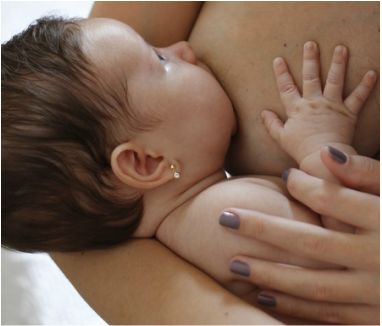 So it should come as no surprise with our great overall health and birth statistics that we also have relatively high overall breastfeeding rates. In 2016, mothers from Minnesota breastfed 90.1% of our babies at least once. Only 6 states have higher rates for ever-breastfed babies! While this is fabulous, there is still work to be done. While our exclusive breastfeeding rates at both three and six months are higher than the national average, it is still less than impressive that fewer than 1/3 of our babies (31.4%) are still exclusively breastfed at six months. Since many babies begin solids between the fourth and sixth month of age, this may not be particularly surprising. However, looking a bit earlier in life, just a little over half (53.9%) of Minnesota's babies are exclusively breastfed at a mere three months of age (CDC 2016 Breastfeeding Report Card), despite the fact that exclusive breastfeeding for 6 months provides most babies with the best start in life. Even the American Academy of Pediatrics, which has been a relatively muted in its support for breastfeeding throughout its years, published a statement in 2012 recommending again that babies should be exclusively breastfed for the first 6 months of life. Let's look at local numbers! How do our local breastfeeding rates compare with state-wide rates? Compared to the state as a whole, Washington County is very supportive of breastfeeding. Washington County Public Health and Environment announced in 2013 that it was designated a Breastfeeding Friendly Health Department. An estimated 88% of hospital-born babies are breastfeeding upon discharge from Washington County hospitals. While not all in Washington County, the three HealthEast hospitals (St. John's, St. Joseph's and Woodwinds) are all relatively close to Washington County, and all three have the Baby Friendly Hospital designation. While about 90% of these babies are being breastfed upon hospital discharge, only about 40% of babies are being exclusively breastfed upon discharge. So clearly there is work to be done encouraging mothers to exclusively breastfeed and supporting them so that they are able to exclusively breastfeed, especially through the first week of baby's life. 7.1% of children living in Washington County, MN (an estimated 4,900 children) live below the poverty line; and of Washington County residents as a whole, 7.6% are unable to get adequate food. Pregnant and breastfeeding mothers, as well as infants and children without food security who qualify based on household income may participate in the county WIC (Women, Infants & Children) Nutrition Program. In 2014 (the latest year with complete information), there were 905 babies in Washington County who were participating in the WIC (Women, Infants, and Children) Nutrition Program. Of these babies, an amazing 88.4% received some breastmilk, identical to the county statistics! By three months, the percentage of babies participating in the WIC Program who were receiving some breastmilk dropped to 44.8% -- half of the original number of breastfed babies. Focusing even more locally (again in 2014) mothers of babies participating in WIC who resided in Lake Elmo, Stillwater, and Mahtomedi had impressive breastfeeding rates. 91.7% of the babies received some breastmilk, identical to the data from MN as a whole. 40.0% of the babies were still receiving some breastmilk at 3 months of age; 30.4% were still receiving some breastmilk at 6 months of age; and 23.0% were still receiving breastmilk at a year. As with Washington County mothers as a whole--locally, there is a drop of over half the number of breastfed babies in the first three months of life. After the first three months, breastfeeding rates continue to drop, but at a much slower pace. A 2015 report about Minnesota mothers participating in WIC indicates that the most common predictors for weaning prior to 3 months include:
If baby received formula in the hospital, mother may assume the baby needs formula, or that it is just as good as breastmilk. While mothers will change their minds, it helps to stay the course if someone is supporting your original intention, and letting you know that while it may be difficult at first, breastfeeding does become much easier later on. Concerns about milk supply and getting baby latched are difficulties for which a trained breastfeeding counselor or lactation consultant can provide valuable assistance. Well-baby check-ups may not coincide with the time the mother is experiencing breastfeeding problems, and not all health care providers have the proper education and training to help breastfeeding mothers troubleshoot problems. Many mothers need help understanding how to make the transition from breastfeeding at home to the very different situation of providing baby with breastmilk after returning to work, a situation that often includes pumping or expressing her milk in less than ideal surroundings. Family and friends may not understand the importance of breastfeeding and may undermine her confidence or exert well-intentioned pressure to give formula. Mothers may not know that free breastfeeding support groups are available for help and support, or they may find it difficult to get to the support group on the day and time when it meets. When I look at these statistics, for Minnesota as a whole, as well as for WIC participants, perhaps not surprisingly, my conclusion is that breastfeeding mothers need the MOST breastfeeding support during the first week (most will be discharged from the hospital within a week), but there is still a great need for support during the first three months of their babies' lives. This is why every mother who wants to breastfeed has a right to the support of a breastfeeding counselor. Breastfeeding counselors visit mothers at the hospital and make house calls, help mothers find solutions to breastfeeding difficulties so that they can reach their breastfeeding goals, and provide a consistent and easily accessible source of support and encouragement. If medical concerns about the baby or breastfeeding issues prove complex, the breastfeeding counselor is trained to refer the mother to a lactation consultant or other health care professional. The breastfeeding counselor has time to devote to the mother-baby that is difficult to find elsewhere. Every mother has a right to a breastfeeding counselor at least for the first three months of her baby's life. How can we make that happen?
|
Details
Archives
November 2023
Categories
All
Enter Your Email Address to get St. Croix Birth Blog Posts in Your Inbox(We don't collect your email address and you won't get anything else from us.)
|
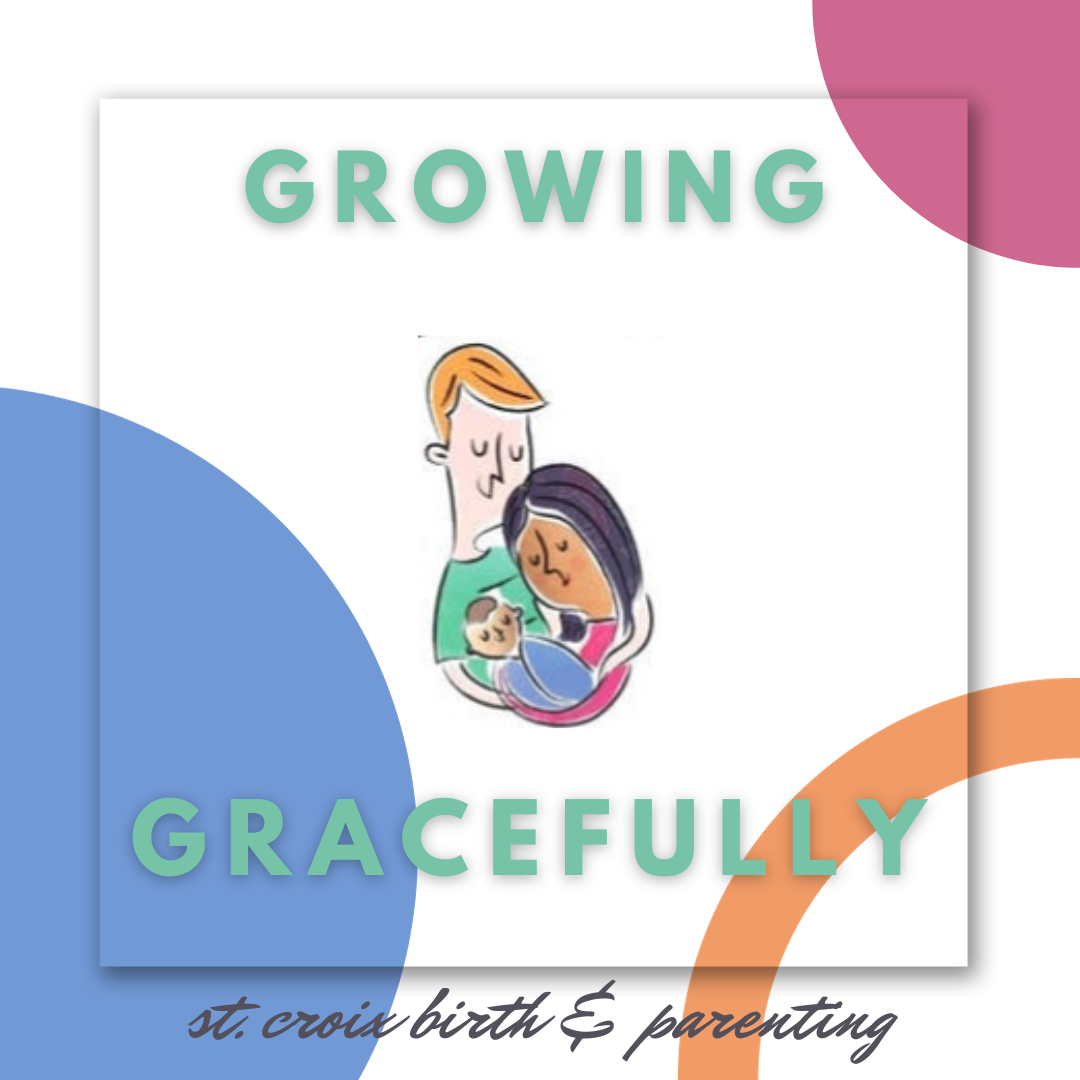
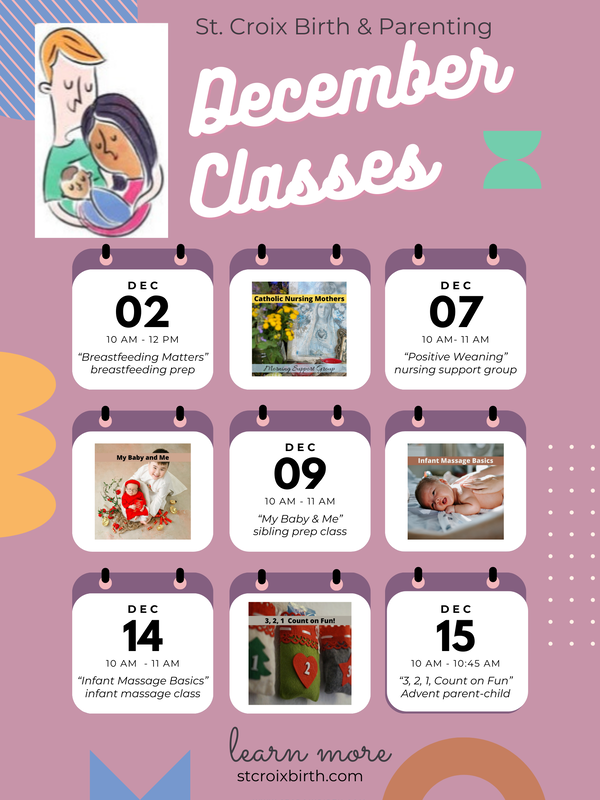
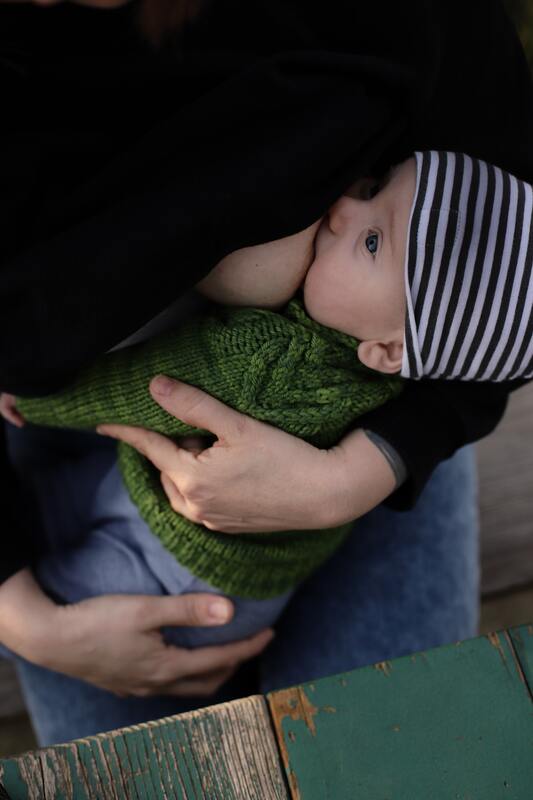
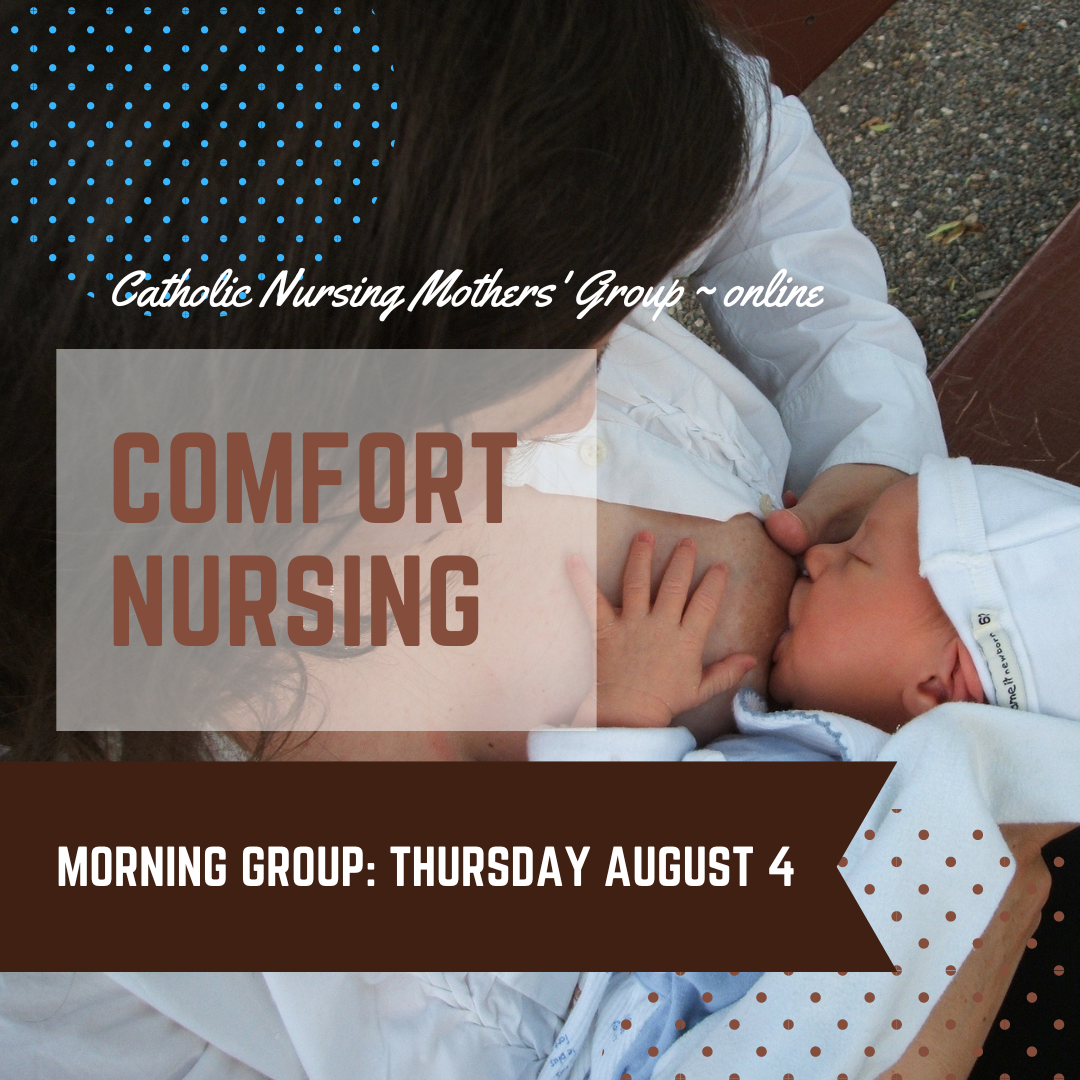
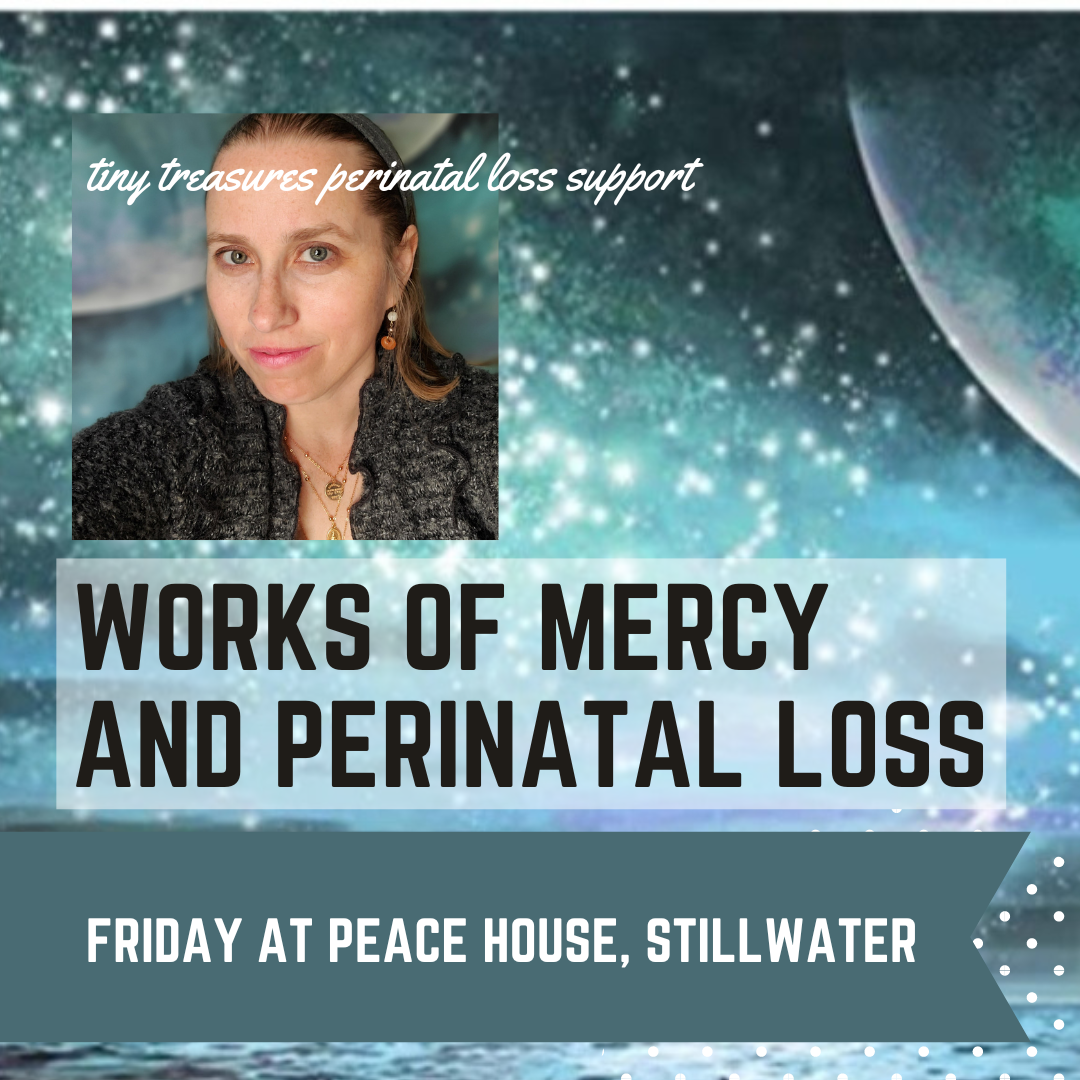

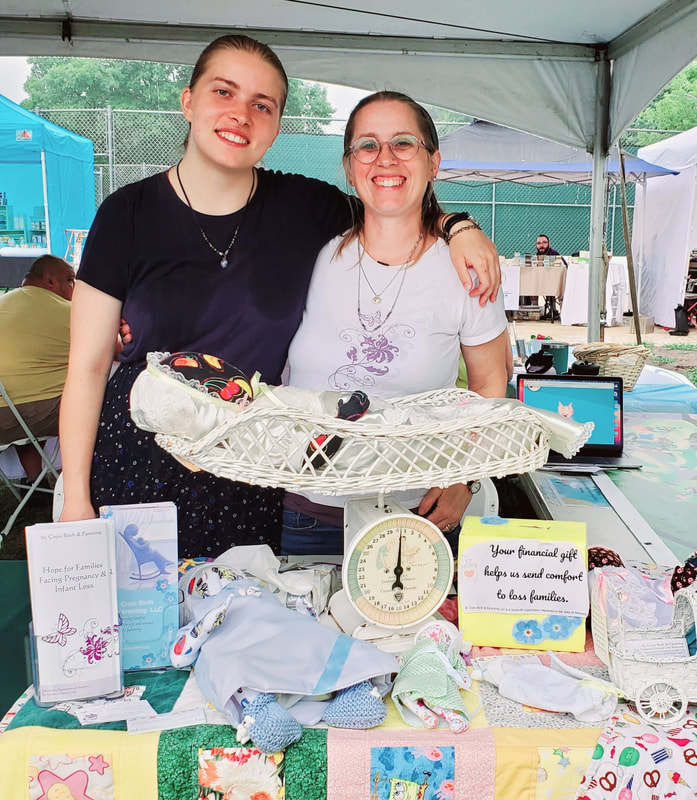
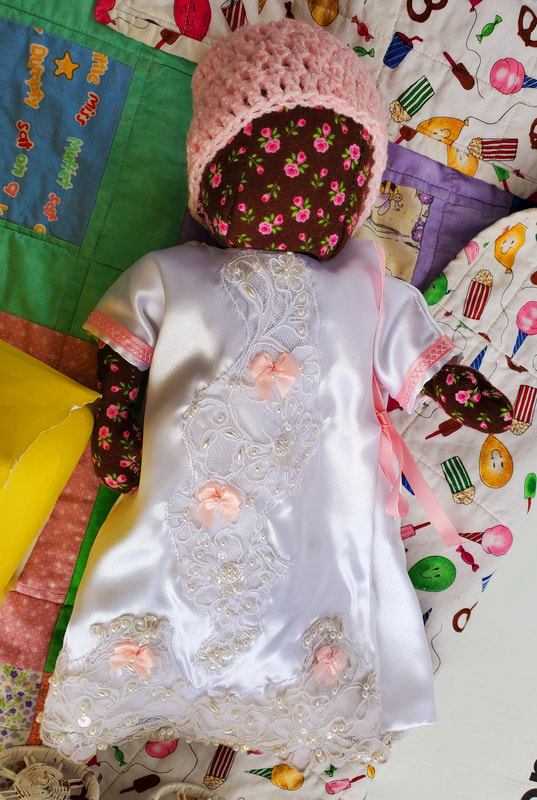
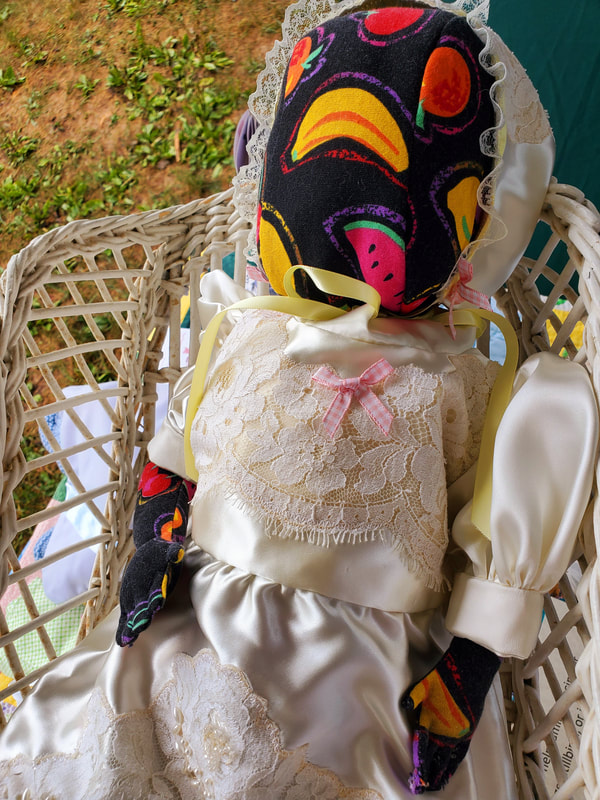
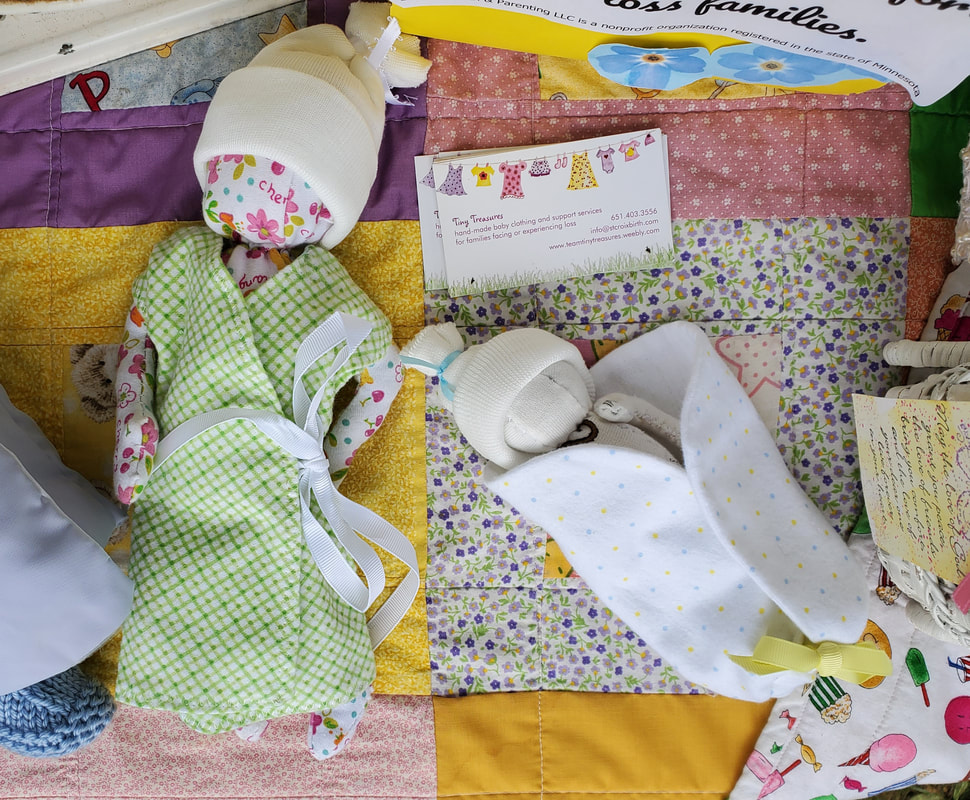
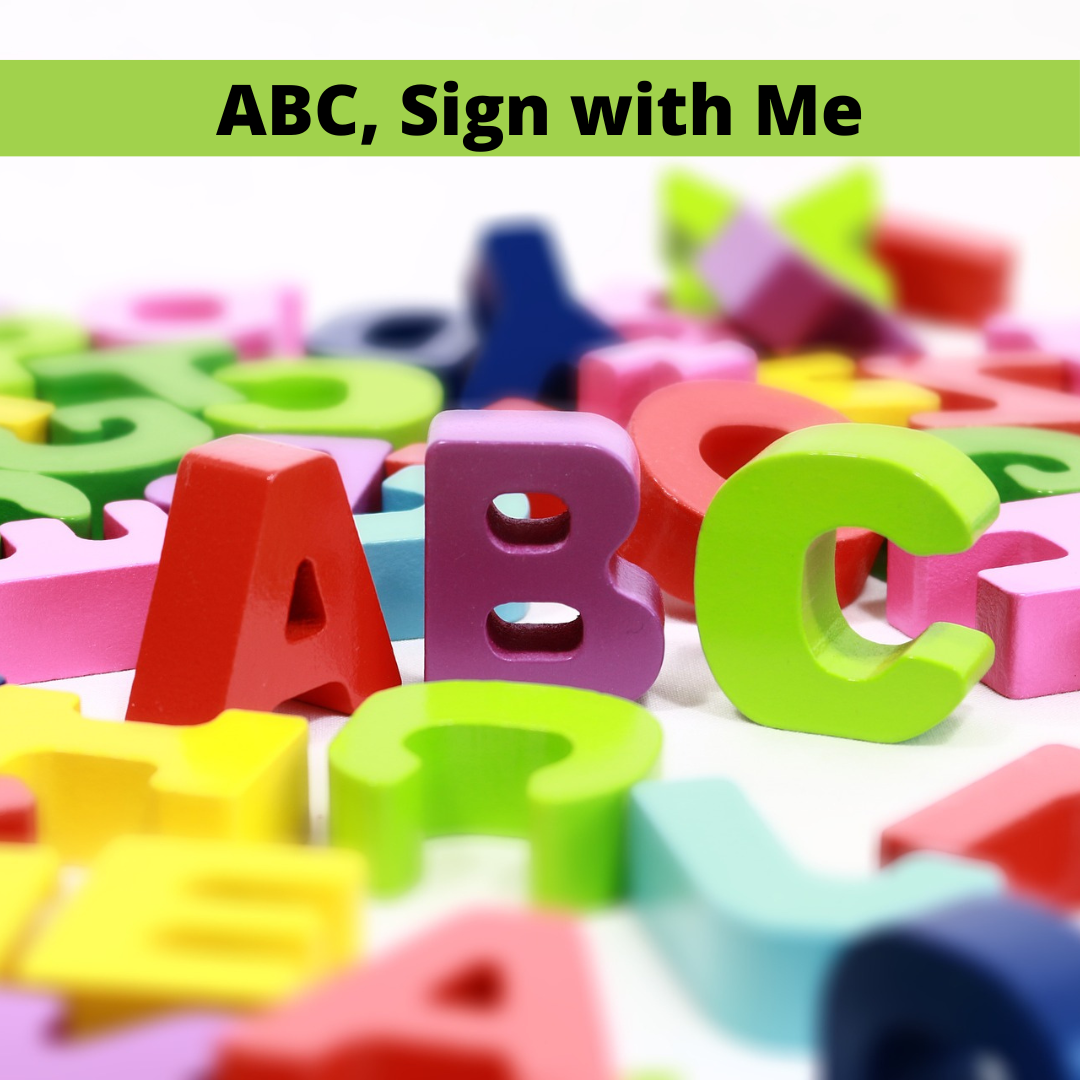
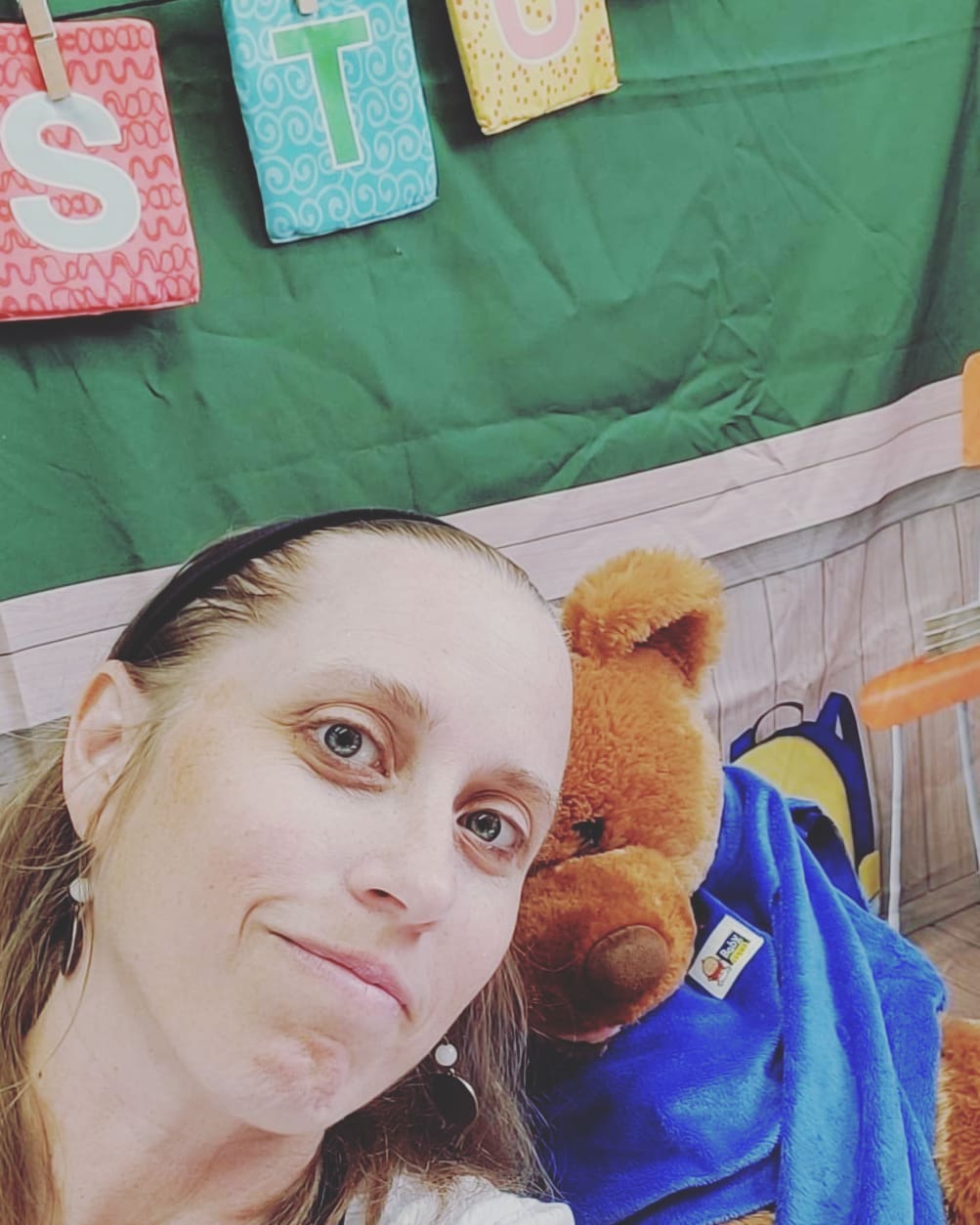

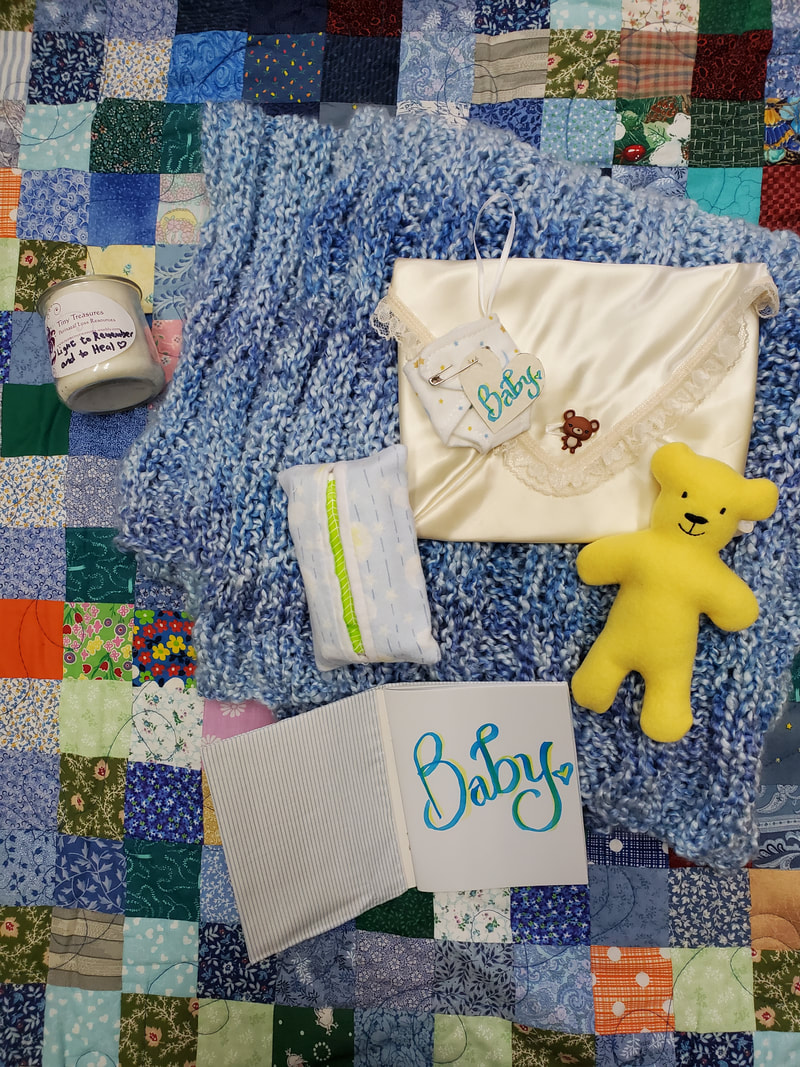


 RSS Feed
RSS Feed